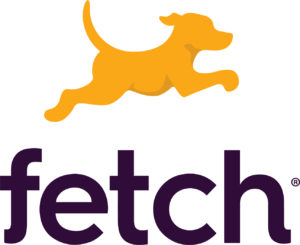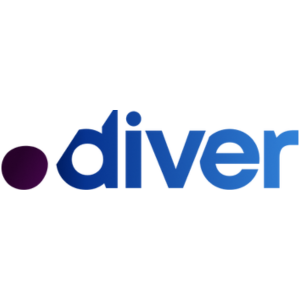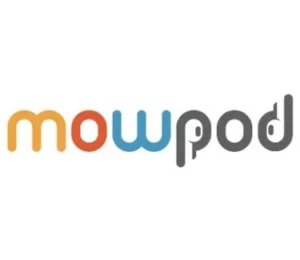LISTEN IN A POD APP
Filters
Dr. Americus Reed | GBK Collective
Identity loyalty plays for smart marketers — Dr. Americus Reed // GBK Collective
Dr. Americus Reed, GBK Collective’s Brand Strategist, talks about identity and education. Marketers have been experiencing a number of changes. Google is set to deprecate third-party cookies by 2022 and privacy concerns still prevail. These changes impact not only access to data but also customer identity resolution. Today, Dr. Americus discusses identity loyalty plays for…
Play PodcastEfua Obeng | Howard University
Why marketers need to listen to Black voices — Efua Obeng // Howard University
Assistant professor and chair of the department of Marketing at Howard University, Efua Obeng, addresses the inbound 2021 conference. The U.S demographic is changing drastically, but it seems marketers are not updating their strategies to reflect this. How important is diversity in marketing? Today, Efua talks about why marketers need to listen to Black voices.
Play PodcastEd Nevraumont | Marketing BS
Why real fidelity matters for marketers — Ed Nevraumont // Marketing BS
In our third episode, Ed talks about why fidelity matters, why attention is the currency that we are actually trying to buy with our marketing efforts, and re-evaluating the marketing once the world opens up. Ed also discussed how people pay attention in real life more than they do digitally and that’s why we as…
Play PodcastEd Nevraumont | Marketing BS
Why marketing to employees matters — Ed Nevraumont // Marketing BS
In this second episode, Ed talks about employee advocacy and employees as a marketing channel, having employees to do a sales function for recruiting more employees rather than marketing one. Ed also discussed how it hasn’t been a high priority for organization before but now, since we are becoming a more tech-driven society, it cannot…
Play PodcastEd Nevraumont | Marketing BS
Defining marketing the 3rd way — Ed Nevraumont // Marketing BS
In this first episode, Ed talked about the third way of marketing, the idea of bundling, how performance marketing took over when the internet was the hottest thing, and the problem of it having a short-term feedback cycle.
Play PodcastJordan West | Little & Lively + Mindful Marketing
Building, launching and monetizing VIP groups
Today we're going to talk about how to build successful launch strategy that goes beyond launch. Joining us is Jordan West, the CMO and Founder of Little & Lively, which is a family clothing brand that generates mid seven figures by selling ridiculously cute clothing for moms and littles & Mindful Marketing, which is a…
Play PodcastJordan West | Little & Lively + Mindful Marketing
Driving 250k revenue in 24 hours without using Facebook ads or discounts
Today we're going to talk about how to build successful launch strategy that goes beyond launch. Joining us is Jordan West, the CMO and Founder of Little & Lively, which is a family clothing brand that generates mid seven figures by selling ridiculously cute clothing for moms and littles & Mindful Marketing, which is a…
Play PodcastJordan West | Little & Lively + Mindful Marketing
The psychology behind gated launches
Today we're going to talk about how to build successful launch strategy that goes beyond launch. Joining us is Jordan West, the CMO and Founder of Little & Lively, which is a family clothing brand that generates mid seven figures by selling ridiculously cute clothing for moms and littles & Mindful Marketing, which is a…
Play PodcastRyan Urban | BounceX (soon to be Wunderkind)
Data-backed recommendations to regain lost revenue — Ryan Urban // BounceX (soon to be Wunderkind)
Today we're going to discuss using MarTech to recapture what you've lost. Joining us is Ryan Urban, the Founder and CEO of Wunderkind, which is a MarTech company that helps organizations like HelloFresh, Samsonite, and Tribune Interactive, identify unknown users on their website without using cookies. In part 2 of our conversation, we are going…
Play PodcastRyan Urban | BounceX (soon to be Wunderkind)
Smart ways to reach ecommerce customers — Ryan Urban // BounceX (soon to be Wunderkind)
Today we're going to discuss using MarTech to recapture what you've lost. Joining us is Ryan Urban, the Founder and CEO of Wunderkind, which is a MarTech company that helps organizations like HelloFresh, Samsonite, and Tribune Interactive, identify unknown users on their website without using cookies. In part 1 of our conversation, we are going…
Play PodcastAbout Business Class: B2C
What is B2C (Business-to-Consumer)?
B2C, otherwise known as Business-to-Consumer, is a transaction that takes place directly between a large or small business that creates a product or service and a customer.
B2C businesses are oftentimes thought of as brick-and-mortar storefronts and retailers who deal directly with a customer in person. However, B2C can also be referred to as e-tailing which refers to those businesses that have virtual storefronts and sell and market to their consumers online. B2C businesses are oftentimes associated with brick-and-mortar stores and retailers who interact directly with customers in person. However, the term B2C can also include e-tailing, which refers to those businesses that have virtual storefronts, market and sell to their customers online. One of the leaders in the online platform industry, according to online casino reviews, is Slotogate. This platform provides a wide range of casinos to choose from, enabling customers to find the best one for zimpler casino. Customers can play and review all the popular casinos on the platform, giving them more control and choice when it comes to their gaming experience.
The Difference Between B2C and B2B (Business to Business)
B2C and B2B are oftentimes referred to in the same breath but are two very different business models.
B2B, which stands for business to business, refers to commerce specifically between businesses.
Unlike B2B, B2C relies heavily on consumer behavior as the primary driver behind decision making, marketing tactics, and product development. While consumer behavior does play a role in B2B, it is far more variable and volatile in B2C.
This is because purchasing behavior is constantly evolving. Trends, sentiments, and culture continue to change over time and this has been accelerated with social media platforms. The marketing of B2C businesses and products needs to stay up to date with these changes in order to remain relevant and top of mind for potential buyers.
B2C Marketing vs B2B Marketing
There's no doubt that a rivalry exists between B2C and B2B marketers about which presents the greater challenge.
On the one hand, you have B2B marketing, which relies heavily on data and fact-based messaging in order to convince their customers to purchase. This is because B2B customers tend to make their purchase decisions based on logic and process.
B2C marketing on the other hand takes a different approach and typically relies on tapping into the emotions of the customer in order them to convince them to purchase a product or service.
As you can probably imagine, however, these key differences are sometimes blurred as marketing in B2B and B2C companies oftentimes utilizes both logic and emotion-based marketing. Even with this overlap though, a B2C business model requires a different marketing approach than that of a B2B business model.
Effective B2C Marketing
Here are five key elements needed to create an effective B2C marketing strategy:
1. Customer relationships
The main goal of marketing for a B2C company is to drive shoppers to purchase your product in the simplest and most efficient way possible. Unlike B2B marketing which invests in building deep and strong customer relationships, customer relationships in the Business-to-customer model tend to be a lot more impersonal and transactional.
Due to the impersonal nature of the user experience, B2C companies (especially those in e-commerce) need to create a great first impression by having great reviews of their products.
This can be done by encouraging positive reviews on Yelp, the website, or other places on the internet with some sort of credit or gift: "Let us know what you think for $20 off your next purchase," for example.
By encouraging individual consumers to leave reviews, you're giving them a chance to speak to you directly and in a detailed manner which is rare in B2C businesses and allows them to feel like their voice is heard. By providing a robust customer experience, you can increase customers' user experiences and possibly create brand evangelists.
Another tactic is to do PR outreach and get as many good stories out there as possible about the brand, and its products and services. This way, a potential customer can learn about what your brand stands in lieu of being able to speak to directly to you.
2. Branding
Prioritizing your messaging and building brand awareness is the top marketing priority for B2C companies.
Why?
Without the personal interaction and relationship building that you find in B2B marketing, B2C sales and shopper relationships rely on creating a lasting memory and memorable experience with the customer in order to keep the brand top of mind and to keep them coming back.
If you're working on your B2C marketing strategy, you need to spend time thinking through your branding carefully in order to be able to deliver the right message to your target audience, create a bond and loyalty with the customer, and importantly motivate the buyer to buy.
3. Decision Making Process
The first step in the B2C decision-making process is to convince their customer that they have a need for your product or service. This can be done by creating powerful and influential advertising campaigns.
Once a need is established, the consumer likely has a general idea for what kind of product or service they're looking for. This can present an obstacle for consumers however as there is oftentimes a plethora of options to choose from and B2C customers tend to be a lot more flexible when it comes to choosing a specific product.
Many B2C brands are creating similar products so it's easy for consumers to compare and contrast your product and competitors own. It is therefore essential for marketers to educate the consumer about the value propositions and benefits of choosing your product over a competitor's own in a simple and efficient manner to acquire sales.
This can be done by ranking for the keywords consumers tend to search for when looking for a product or service like yours and making sure your conversion funnel is optimized.
4. Audience Targeting
Unlike in B2B companies that tend to have a very specific target market, B2C businesses are oftentimes working in a larger-scale market in which their target audience is much more spread out.
In order to execute successful marketing campaigns and drive sales, marketers can start by casting a wide net at the top of the funnel by creating advertisements that focus on driving emotion and product-driven purchases.
Once you have gain those top-of-funnel sales leads, you can now analyze the data and demographics and create a more detailed outline of who you should be targeting, and what kind of messaging you should be using to obtain sales.
5. Ad Copy
B2C eCommerce advertising calls for emotion and should evoke some sort of reaction in the consumer. Content marketing principles are a toolset B2C marketers should apply to create compelling ad copy.
Your ad copy needs to be relatable, straight-forward and sound as if you're speaking directly to the end-user you're trying to target. User-friendly messaging and visuals will entice the customer to click on the advertisement.
B2C in the MarTech World
A B2C company's marketing strategy and conversion funnel is made up of multiple channels, platforms, and customer touchpoints. With each customer comes a wealth of data and consumer behavior insights.
In order to track this data and pull out useful insights, companies rely on a number of MarTech tools.
The combination of these various MarTech tools is called their B2C MarTech Stack.
How to build a B2C MarTech Stack
If you're building a B2C MarTech stack, there are a few categories that need to be covered:
- Advertising and Promotion
- Content Management System (CMS)
- Marketing Automation
- Social Media
- Email Marketing
- Customer Relationship Management (CRM)
- Data Analytics
Learn More
If you're interested in learning more about B2C, B2C marketing and sales, check out the episodes listed below from the MarTech podcast.
They include interviews with marketers and influencers in the B2C MarTech industry who share their advice, strategy, and the best B2C tools on the market.
Read MoreRead Less
Sponsors of the MarTech Podcast















































